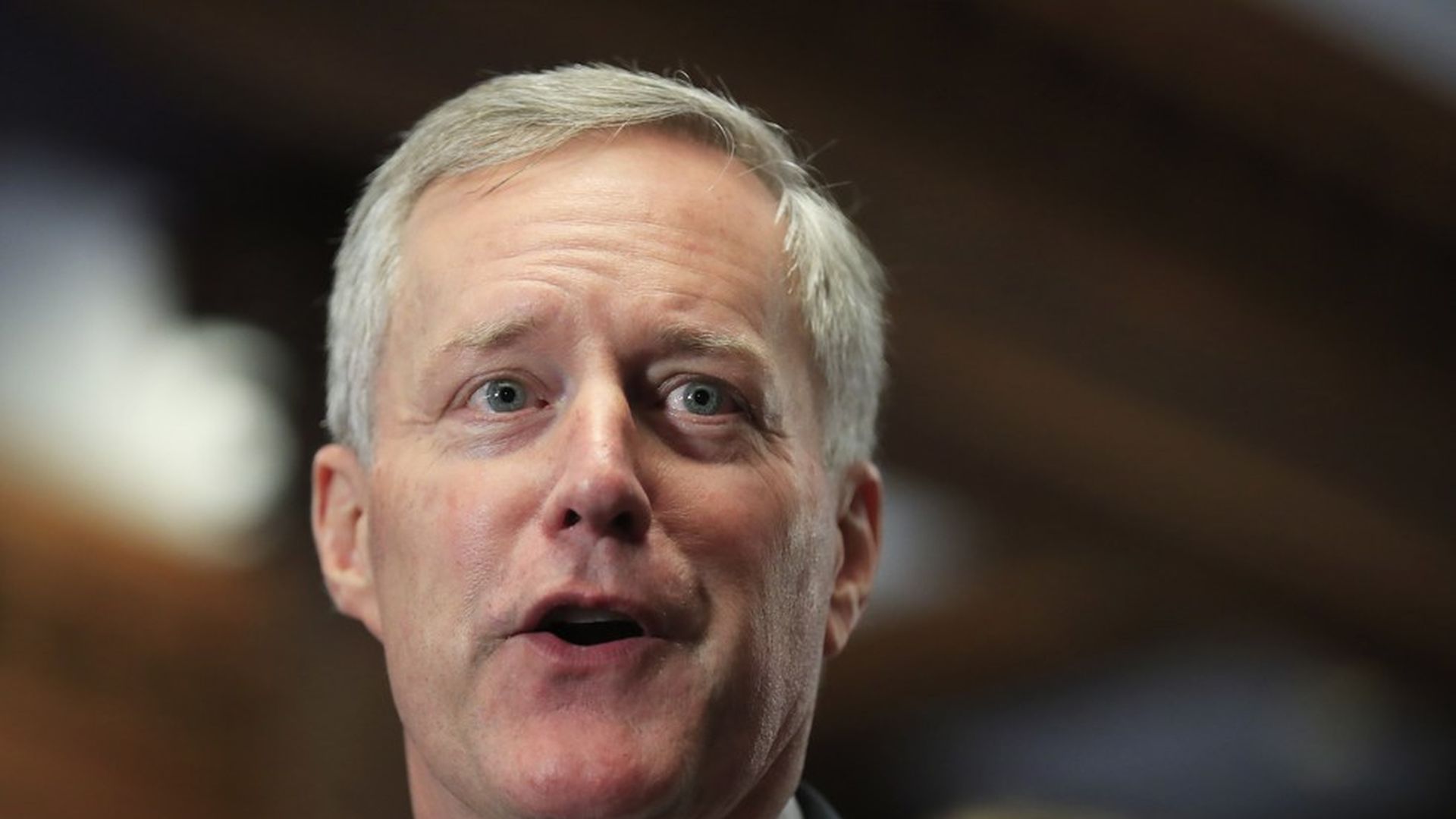Scoop: Inside the Freedom Caucus' tax plan
Add Axios as your preferred source to
see more of our stories on Google.

Freedom Caucus Chairman Rep. Mark Meadows, R-S.C., speaks to reporters on Capitol Hill in Washington (Manuel Balce Ceneta / AP)
The House Freedom Caucus — a group of around 35 ultra-conservative House Republicans who can block their party's leadership on key legislation — is in the final stages of drafting its own tax plan, according to sources familiar with the process.
Freedom Caucus chairman Mark Meadows is expected to unveil his group's tax reform plan in the near future.
But sources familiar with the arrangements have leaked key details in the current draft of the Freedom Caucus plan. (These details haven't yet been formally discussed within the group and therefore aren't set in stone):
- Slashes the corporate tax rate from 35% to 16%.
- Doubles the standard deduction for individuals.
- Abandons "revenue neutrality," the dogma that tax reform mustn't worsen currently projected deficits.
Instead of raising new sources of money to ensure their tax cuts don't add to deficits, the Freedom Caucus is planning to embrace a non-traditional idea to extend the budget window:
- The idea, pushed by some conservatives, including Sen. Pat Toomey, is to change budget rules so that tax cuts that add to the deficit can last for 20 years or longer, rather than expiring after 10 years.
- Pushes some form of "welfare reform" (of which I have obtained no details so far.)
Why this matters: It's a move designed to unsettle Republican leaders Paul Ryan and Mitch McConnell, who've been working behind closed doors to craft a tax plan with the White House. The group, known as the "Big Six" — the other members are tax-writing committee chairs Kevin Brady and Orrin Hatch, and administration officials Gary Cohn — has kept the details of their plan incredibly close to their vests.
- The Freedom Caucus plan will highlight the fact that Republican leaders and the White House haven't released any details of their tax discussions, beyond the fact that they've killed off a House Republican idea to pay for tax cuts by raising around $1 trillion over 10 years through the so-called "border adjustment tax."
- Expect Republican leaders to level the same criticism they've always made about the Freedom Caucus: that these members always move the goalposts to unattainable places and by doing so ensure nothing gets done.
- The Freedom Caucus plan is far more ambitious than anything the "Big Six" can realistically achieve. Republican sources who've been briefed on elements of the group's secretive discussions say there's broad acknowledgement that there's zero chance they can get the corporate tax anywhere close to Trump's goal of 15%. In fact, I've yet to speak to an official involved who will confidently assert they can find enough revenue to get the rate below 25%.
- "It appears that the whole plan is another example of the Freedom Caucus setting unachievable goals that they know leadership can't deliver rather than trying to make law," says a Republican close to leadership. "It makes me wonder why these guys run for Congress if they don't want to get things done."
